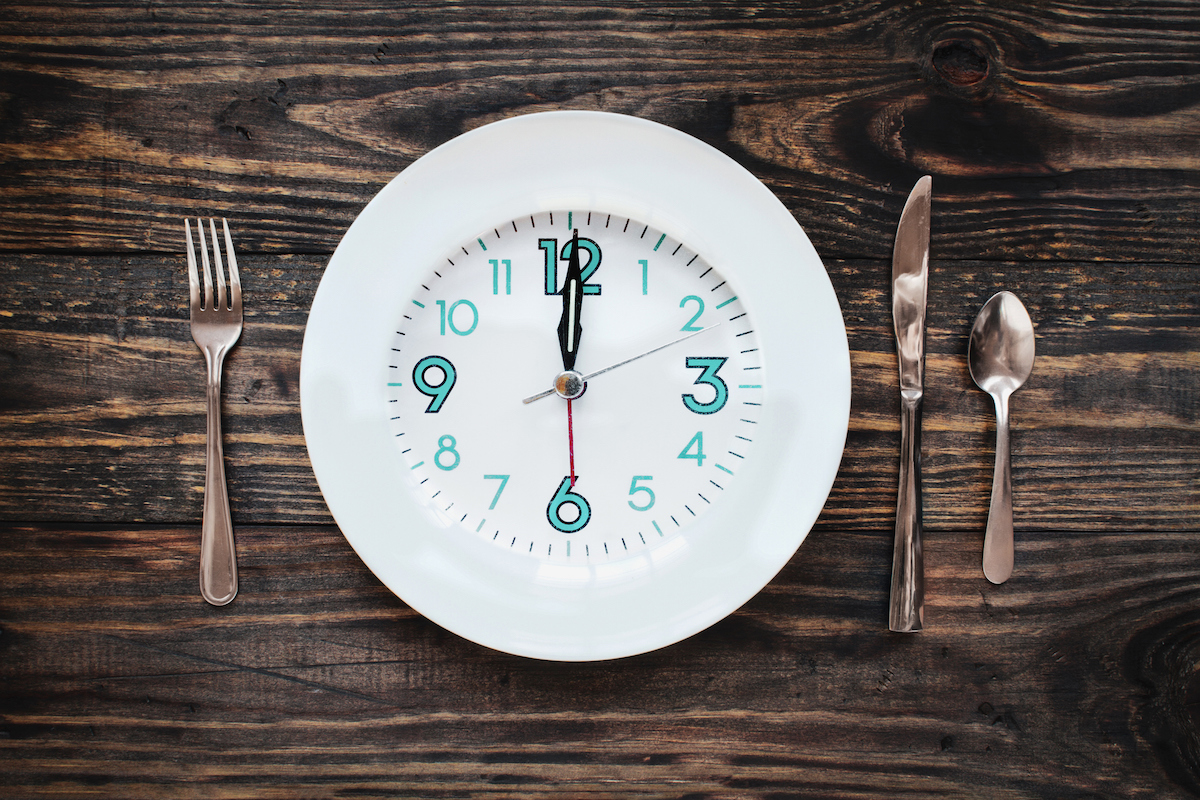<< Back
Considering Intermittent Fasting? Not So Fast.

October 06, 2020
In 2019, “intermittent fasting” was the top trending diet search in Google.
Celebrities, from Jennifer Aniston to Jimmy Kimmel, swear by the diet method that limits the hours per day a person can consume food. On Amazon, more than 8,000 titles are listed under the “intermittent fasting” category. Everyone seems to know someone who has “lost a lot of weight” with intermittent fasting.
But, said Jessica Crandall, a registered dietician at Hartford Hospital’s Center for Advanced Heart Failure, there’s a “but.”
It’s only recently that results of a study of intermittent fasting’s effects in humans was released. Until now, only studies in mice had been used. This 12-week study by researchers at University of California, San Francisco, followed 116 overweight people in 2018, and found no statistically significant difference in weight loss between people who restricted their eating to a specific eight-hour period every day and those who didn’t.
Dr. Ethan Weiss himself lost some weight using an eight-hour window of eating, and decided to formalize it in a study. People who were assigned to eat at random times within a strict eight-hour window each day, skipping food in the morning, lost an average of around 2 pounds over a 12-week period. Subjects who ate at normal meal times, with snacks permitted, lost 1.5 pounds. The difference was not “statistically significant,” according to the research team at UCSF.
Crandall said these results are not surprising.
“Intermittent fasting all ties back to all these yo-yo diets we see,” she said. “For some people, yes, it will work. That’s true of any diet. But it doesn’t instill good habits and it messes with your metabolism. And will you keep it up long term?”
Crandall said simply cutting caloric intake might result in weight loss but it won’t result in good health.
“You need to eat whole foods, real foods,” she said. “You need to exercise. If you restrict your eating to a six-hour or eight-hour window every day, yes, you may lose weight. But you also might be cutting out some very important nutrients.”
She recommends the “My Plate” method, in which each meal is divided into quarters: A quarter of your plate should contain lean, healthy protein like chicken or fish; a quarter of your plate has whole grains or healthy carbs; and half the plate is filled with vegetables and/or fruits.
“Food doesn’t have to be complicated,” she said. “It just has to be real.”
Crandall said she could support an eating schedule of “12 hours on, 12 hours off” because “that represents basically a regular day. So eat between 7 a.m. and 7 p.m. I’m a big believer in a good, solid breakfast. It sets the tone for the day, controls your appetite for the day, and gives you energy for the day.
“Then, don’t eat after 7 p.m. That’s the time when we are most likely to engage in mindless eating, sitting in front of the TV or any screen, and eating calories without consciousness. Setting those kinds of limits can be helpful. But extreme anything is not healthy.”